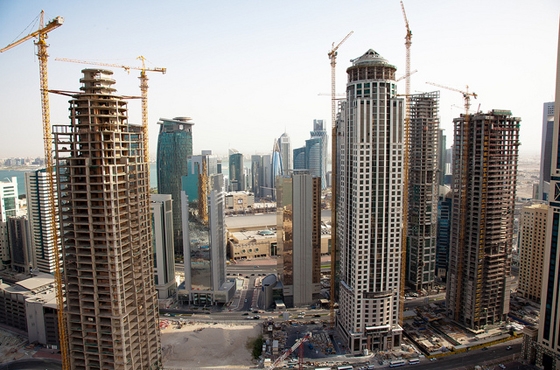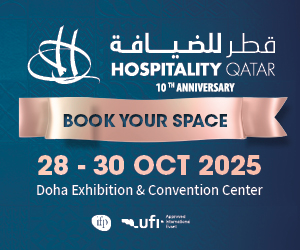Qatar and the UAE are powering ahead with tourism projects to prepare for mega events that are expected to draw tens of thousands of visitor, but analysts say Gulf Arab states need to ensure growth can be sustained in the long term.
Despite the surge in travel to countries such as Saudi Arabia, the United Arab Emirates and Qatar, there is still a significant surplus of available hotel rooms; and more are being added.
Saudi Arabia, which mostly attracts religious tourism, has the highest number of rooms under construction with 17,135 rooms, followed by the UAE (16,627 rooms), Qatar (5,633 rooms), Jordan (3,231 rooms) and Egypt (2,966 rooms).
"Many markets are still contending with absorbing the impact of past openings as well as the resuscitation of previously stalled projects," said PricewaterHouseCoopers (PWC) in a new report. "So, although demand is strengthening and supply growth slowing, there remain more rooms available than rooms sold."
Dubai is adding the most rooms, followed by Mecca, Riyadh, Doha, Abu Dhabi and Jeddah, according to PWC.
MEGA EVENTS
Dubai's economy suffered during the global financial crisis and many of the proposed hotel projects were mothballed until conditions improved. A turnaround in the economy, however, has seen the revival of stalled projects coupled with the announcement of new ones.
"Over the next 4 years, more than 24,000 hotel rooms and serviced apartments are expected to be added to the market," according to Jones Lang La Salle in a new report on Dubai's hotel sector.
Much of Dubai's construction spree is linked to it hosting the World Expo in 2020. The Department of Tourism and Commerce Marketing estimates a need for between 140,000 to 160,000 new rooms by 2020.
"Matching demand to supply to accommodate visitors at peak times and for large events runs the risk of overcapacity during non-peak times," said PWC.
Dubai is addressing the issue of overcapacity by moving down the value chain and building more affordable three and four-star hotels, and is targeting families.
Developers have previously focused on construction of upscale and upper-upscale properties, especially in Dubai's central business district and along the beach, according to JLL.
"However, this preference has led to a gap in mid-market and budget hotel rooms, which respectively make up only 15% and 16% of the total room supply."
Qatar is also looking to spend USD 20 billion on tourism infrastructure as it prepares to host the FIFA World Cup 2022. An estimated 45,000 new hotels rooms will be needed to meet FIFA's guidelines, and as many as 21 hotels are being planned by 2017.
TAKING IT TO THE NEXT LEVEL
"Dubai and Doha both face challenges to take their tourism sectors to the next level: Dubai has become one of the world's fastest growing destinations: even without Expo, Dubai had set itself a target of hosting 20 million visitors per year by 2020 – that's almost double the number they have coming through now," PWC commented.
While mega events provide a boost to the economies and profile of countries, the authorities will need to determine the financial costs of the investment and how the facilities will be utilized to continue to attract tourists after the event.
"Many growth market mega-event hosts have been known to leverage the mega event to draw attention on the world stage — sometimes described as a 'coming-out' party," the consultancy said. "They view mega-events as an opportunity to showcase their economic development successes to the world as well as to attract future economic growth."
Given strong macroeconomic fundamentals and stability, the outlook for the hospitality sector in the UAE and Qatar is promising. Estimates show more than 19 million passengers passed through these two countries alone last year – a 79% increase over 2009.
The number of international association meetings in the Middle East has doubled each decade in the last 50 years, and more than tripled in the last 10 years, according to The International Congress and Convention Association (ICCA).
"The Middle East joined the information revolution more recently than most regions, so it is not surprising to see some of the world's fastest growth rates here," said ICCA CEO Martin Sirk.
"Now that excellent meetings infrastructure has been developed, governments have created knowledge strategies to underpin their economic development agendas, and local demand for education and knowledge-transfer is at an all-time high."
Despite the growth, PWC warns that hotels are facing higher costs. In Dubai, the government has imposed a 10% tourism tax, in addition to a 10% municipality tax and 10% service charge. Shortage of labor and pressure to increase wages could see cost shoot up for many hotel developers.
The feature was produced by alifarabia exclusively for Zawya
25 May





































































